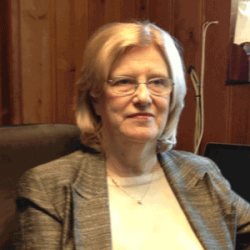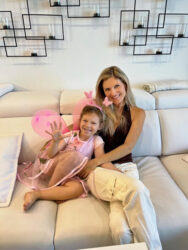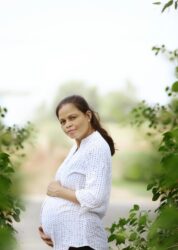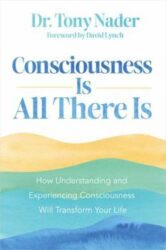Report from Greek Refugee Camps: An interview of Stacey Hurlin
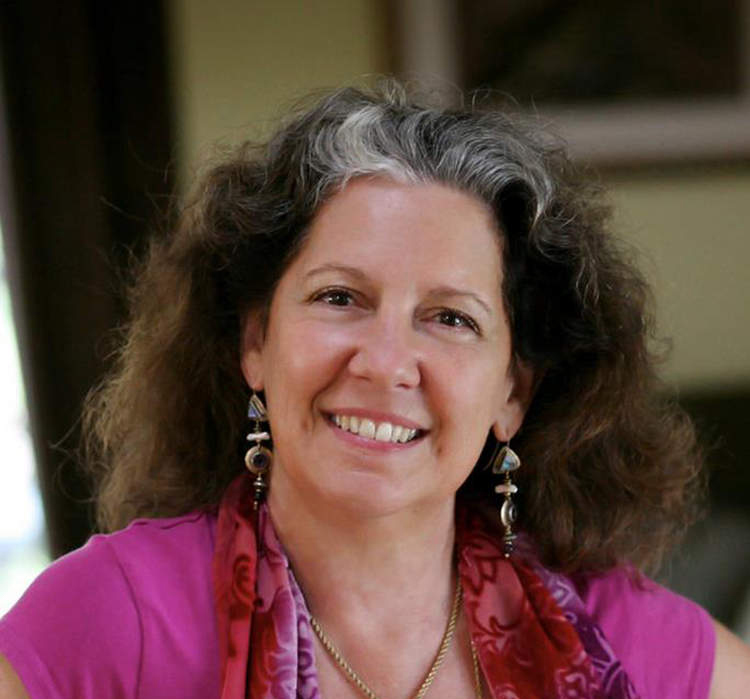
Anastasia (Stacey) Hurlin is a mother, an educator, an artist, and an activist; in her case, activist means being an unhesitating proactive mother to the world. She has a keen perception of the remarkable good fortune that she and so many of us have in America—a truth that most of us don’t acknowledge and appreciate often enough. Cognizant of the deprivation and tragedy that so many others, by contrast, suffer, she does something about it; she is kind, compassionate, brave, and determined. Her refugee project website starts with this quote of Georgia O’Keeffe: “It’s not enough in life to be nice. You’ve got to have nerve.”
Stacey—a resident of Iowa—is volunteering in one of several relocation camps in the Athens, Greece area. Refugees relocated from the Greek island camps—already overcrowded, inadequate, and sometimes dangerous for women and children—were dispersed throughout the country’s mainland. Sixty thousand asylum seekers are presently awaiting the complex, and mostly discouraging, process of delays, misinformation, and paperwork.
A June 2016 editorial on newsdeeply.com by Amnesty International’s Giorgos Kosmopoulos, stated:
This year, more than a fifth of refugees and asylum seekers arriving in Greece are female and well over a third are children, according to the latest U.N. reports. None of them can leave until they are given appointments by the asylum application services in Athens, a process that can be painfully long due to insufficient staff and a backlog of applications.
While the camps on the Greek islands were initially set up as refugee processing facilities, they were turned into prison-like detention centers without freedom of movement following the E.U.-Turkey deal. While the authorities recently relaxed restrictions on the movement of people, thousands are crammed together in tents and containers (ed. note: small metal trailers). Basics such as food, including baby milk, are often scarce, and shower and toilet facilities extremely unhygienic.
Stacey allowed me to interview her by email, responding from Greece:
Stacey: Lesvos is a Greek island near the Turkish coast and has a population of 85,000. Because of its proximity to Turkey it has received an unprecedented number of refugees and migrants fleeing both war torn and/or situations of extreme living conditions. The tsunami of arrivals is part of the present crisis of displaced persons, a crisis that seems to have no clear programs, proposed plan, to address the situation.
Question: How did you get involved in this relief work?
Stacey: I am Greek American—all of my grandparents grew up in Greece. I became aware of the sudden increase of refugee boat arrivals in Early April of 2015. Most inadequate and over-crowded boats arrived to the island of Lesvos. After watching the media reports for a few months, I just couldn’t sit and only watch. For me, it is about, “What can I do with what I have from where I am.”
Question: Do you have a background in social service or health?
Stacey: My background is an educator in elementary school settings as well as in fostering community arts programs and opportunity. And, certainly, raising a large family rounds out one’s opportunity to offer well-being.
Question: How do you maintain the emotional and physical stamina to extend yourself in these circumstances?
Stacey: Being with these individuals and these families in the camps has been one of the most complex and most rewarding experiences I have ever known, and due to the complexity, not easy to explain. Why do I have the good fortune of the life I and my family have had? Why is there such contrast to my life and the life of the woman who sits quietly showing me photos on her cell phone of her neighborhood—photos that show nothing but row after row of rubble –as she points to one corner of the screen and softly says, “There. There is where our house was. And there,” moving her finger slightly, “There was our shop.” Why? Why is that woman living her life, and me, mine. I cannot answer this. I can come up with all kinds of theories. But, sitting with her, as with dozens to whom I have listened, I have—maybe for the first time ever—learned to listen. Everyone has their story, we all do. I have learned to listen.
This is not even about sympathy—it is time and place compassion, or empathy. My own perspective, quite personally, is that of equanimity. My faith tells me that this is a beautiful planet, people are inherently good, that life is unfolding as it is and I don’t need to know—nor am I able to know—the answers to all the ‘why’ questions I could ask. I find peace in accepting that this is how humanity is ‘showing up’ now. And I will find my way to contribute goodness. It is as simple as that. If I try to figure out how, why, or when the world will appear differently I will be at a loss and become discouraged.
This is not a case of mood making or rose-colored glasses. I see myself as choosing to accept that everything, all events, have their purpose. And I don’t need to know more.
Question: Do you think the TM technique has increased your capacity to feel connected to people the world over and increased your compassion?
Stacey: It might be that I could never have done this up-close and personal connection with such a vulnerable people had I not been steadily culturing a basis of adaptability and flexibility from years of the Transcendental Meditation practice. That is what meditating has done for me. Life has its way of throwing curve balls, yes? I notice that I am increasingly finding a deeper compassion and acceptance of both others and, importantly, myself. And an equanimity about situations that I find myself in. We are, really and truly, one family, this world. How we choose to treat our fellow family members is a choice. I hope to—more often than not—choose kindness.
And in some moments in life, I seem to take on a global proactive mission of service. What I would dearly like to see unfold in these camps is an open mind among all involved, i.e. the refugees, the NGOs, the volunteers, to understand that the situation potentially could be positively altered if something like Transcendental Meditation were to be done in the camps. For those interested, there could be a group that even do Transcendental Meditation together daily. It could ease the stress levels for them, it could reduce the undertone of anxiety for the entire camp. It might help with the prevalent insomnia and other signs of PTSD in virtually everyone.
The common languages of the refugee camps I have volunteered in are predominantly Arabic, and secondly, Farsi. Teachers of TM who know these languages could have a significant impact in these camps throughout Greece, offering both a description of the value of this meditation in the life of a Muslim culture as well as TM instruction and follow up attention. I cannot emphasize enough how much benefit this would bring. It addresses the root of the current crisis. How countries will take further steps in diplomacy is anyone’s guess. And, frankly, it is not looking too promising at the moment.
But if we consider, really consider, that the many individuals currently in limbo in these utterly inhumane camps could be doing TM, being successfully proactive for their own well-being, gaining increased inner peace, increasing the clarity of their own thinking, reducing their stress and anxiety, that this alone might collectively favorably affect the numerous tangents of government policy making, both immediate and across nations—why not? Why not try it. For the children at least, why not try it? I ask any government official, any community organizer, any philanthropist: why not try it? What is there to lose?
For the most part, these camps are filled with educated, intelligent, skilled people. Everyone I have met sincerely wants to get on with their life—to be productive, to provide for their family. This is what everyone wants.
And certainly the world is my own mirror. I see that these women just want what I want. To be valued. To be able to give nourishment and care for their family.to be able to show their young that the world has a place for them. I see that for myself as I am forever relearning what I thought I had previously learned! Finding my purpose and opportunity to be of service, giving myself permission to know yet new versions, a more authentic version of ‘me’ and just notice that peace of mind is the basis of all peace. Period.
See Stacey’s NGO site at www.lesvosrefugeeproject.com
About the Author
Janet Hoffman is the executive director of TM for Women Professionals, a division of TM for Women in the USA

